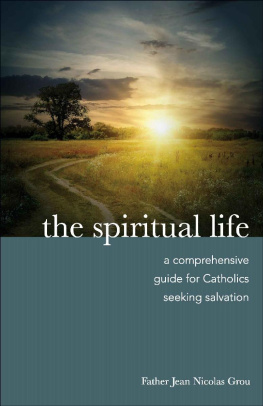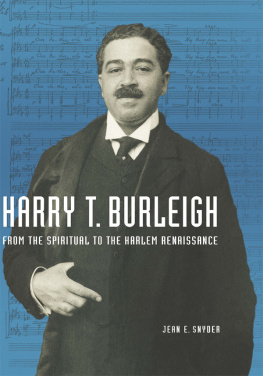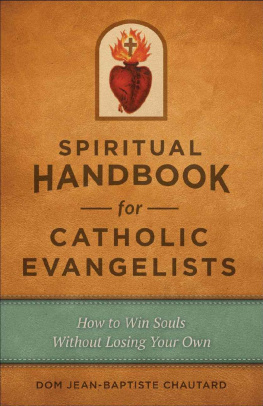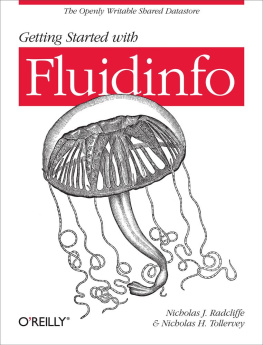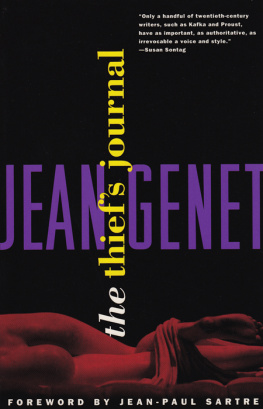Fr. Jean Nicholas Grou - The Spiritual Life
Here you can read online Fr. Jean Nicholas Grou - The Spiritual Life full text of the book (entire story) in english for free. Download pdf and epub, get meaning, cover and reviews about this ebook. year: 2013, publisher: Sophia Institute Press, genre: Religion. Description of the work, (preface) as well as reviews are available. Best literature library LitArk.com created for fans of good reading and offers a wide selection of genres:
Romance novel
Science fiction
Adventure
Detective
Science
History
Home and family
Prose
Art
Politics
Computer
Non-fiction
Religion
Business
Children
Humor
Choose a favorite category and find really read worthwhile books. Enjoy immersion in the world of imagination, feel the emotions of the characters or learn something new for yourself, make an fascinating discovery.
- Book:The Spiritual Life
- Author:
- Publisher:Sophia Institute Press
- Genre:
- Year:2013
- Rating:4 / 5
- Favourites:Add to favourites
- Your mark:
- 80
- 1
- 2
- 3
- 4
- 5
The Spiritual Life: summary, description and annotation
We offer to read an annotation, description, summary or preface (depends on what the author of the book "The Spiritual Life" wrote himself). If you haven't found the necessary information about the book — write in the comments, we will try to find it.
The Spiritual Life — read online for free the complete book (whole text) full work
Below is the text of the book, divided by pages. System saving the place of the last page read, allows you to conveniently read the book "The Spiritual Life" online for free, without having to search again every time where you left off. Put a bookmark, and you can go to the page where you finished reading at any time.
Font size:
Interval:
Bookmark:
The Spiritual Life
A Comprehensive Manual for Catholics Seeking Salvation
Fr. Jean Nicolas Grou
SOPHIA INSTITUTE PRESS
Manchester, New Hampshire
The Spiritual Life is an abridged edition of Manual for Interior Souls (London: St. Anselms Society, 1910). This 2002 edition by Sophia Institute Press includes minor editorial revisions to the original text and presents the chapters in a different order from that of the original edition.
This abridged edition copyright 2002 Sophia Institute Press
Printed in the United States of America All rights reserved
Cover design by Carolyn McKinney
Photo credit: 13501228 iStockphoto/Sergiy Trofimov
No part of this book may be reproduced, stored in a retrieval system, or transmitted in any form, or by any means, electronic, mechanical, photocopying, or otherwise, without the prior written permission of the publisher, except by a reviewer, who may quote brief passages in a review.
Sophia Institute Press
Box 5284, Manchester, NH 03108
1-800-888-9344
www.SophiaInstitute.com
Sophia Institute Press is a registered trademark of Sophia Institute.
Imprimatur:
Herbert,
Archbishop of Westminster
November 29, 1892
Chapter One

Recognize how precious your soul is to God
If, on the one hand, religion humbles a man by teaching him that he comes from nothing, that he was conceived in sin, that he is inclined to evil and incapable of any supernatural good, on the other hand, it raises him up and inspires him with great thoughts about himself, by teaching him what his nature is really capable of through the grace of God, what is the greatness of his destiny, and what it cost God to purchase his salvation.
The human soul, by its very nature, is endowed with the faculty of knowing God and the capacity for loving Him. The intelligence of the soul, transporting itself above all that is created and finite, has power to raise itself even to the contemplation of that Being who alone is uncreated and infinite, who is the source of all good and all perfection; it is able to form of Him an idea that is clear and accurate and indelible. The will of the soul is made to love this sovereign Good, which the understanding presents to it. The desires of the soul, which no created object can ever satisfy and which reach far beyond the limits of this life, tend necessarily toward a Good that is supreme, eternal, and infinite, and which alone can content the soul and make it happy.
If the soul will analyze the desire it has of happiness, and the idea of happiness that presents itself to it, it will find that the object of this idea and of this desire is only and can only be God. This is the impression that the soul bears in the depths of its nature; this is what reason will teach it if it will only reflect a little, and this is what neither prejudice nor passion can ever entirely efface. Everything that is not God, everything that does not relate to God, is unworthy of occupying the mind or the heart of man, has no proportion with the immensity of his ideas and desires, and can never fully satisfy them. The very heathen philosophers comprehended this truth up to a certain point, and this was what rendered man so great in their eyes. Happy would they have been if in their conduct they had followed the light of their reason and the secret instinct of their hearts!
Not only is man destined to know and to love God in this life, but in another life he is to possess God eternally. It is not enough for him to be immortal; he is one day to be united to the Source of immortality and to be happy with the very happiness of God. Of what use, indeed, would immortality be to him, if he were to be forever consumed with a desire for God without ever possessing Him? Such a desire, if it were never satisfied, would be only a torment.
This is, then, the final end of man: the eternal enjoyment of God! He will see God; he will contemplate God in Himself, and this sight and this contemplation will overwhelm him with an ineffable joy. Reason puts us in the way of learning this great truth, but Divine Revelation alone can give us distinct instructions on it. And as it is a wonderful gift, which certainly is not due to our nature, we would never have known of it unless God Himself had expressly revealed it. Therefore, there is nothing like it in the writings of the wise men of antiquity.

We must make good use of our free will
But this eternal possession of God is not promised to man absolutely and without conditions; he must merit it by the good use he makes of his free will during this short life. And God, on His part, gives him and offers him everything that is necessary for making a good use of his free will.
And in what does this good use consist? In loving and serving God according to the knowledge with which reason and religion supply him in practicing a certain number of precepts that in themselves contain nothing but what is just and right. Reason cannot help approving of these precepts, and the upright heart is drawn to them. Even in this world, man finds peace and happiness in the observance of these precepts.
How great is man when we consider him from this point of view! How noble are his ideas, how elevated his sentiments, how pure his actions, how worthy he is of the esteem of God and of his fellowmen, when he thinks and speaks and acts always with a view to this sublime destiny, when he never loses sight of it, and when he never allows himself anything that could draw him away from it! What more just and excellent use can he make of his reason and his liberty?
But how small is he, how mean, how foolish, how unjust and cruel to himself, if, confining his ideas and affections to this life, which is passing away, to this life, of which not one single moment is in his own power, he lowers himself to the enjoyment of things that were not made for him, to things that will always leave him empty and craving for more; and if, to procure himself this enjoyment, he tramples underfoot the law of God and exposes himself to the danger of losing forever the eternal happiness that is awaiting him!
Is there any folly to compare with such folly as this? Can the degradation of our being be carried farther? Can a man be a greater enemy to himself? Be astonished, O heavens, God Himself exclaims at the sight of such a strange perversity. Gates of Heaven, give yourselves up to desolation! My people that is to say, those men that I formed in my own image, whom I destined to be the citizens of my kingdom, to share my glory and felicity my people have committed two evils: they have forsaken me, the Fountain of living water [of true happiness], and they have hewed themselves out broken cisterns that can hold no water.
Next pageFont size:
Interval:
Bookmark:
Similar books «The Spiritual Life»
Look at similar books to The Spiritual Life. We have selected literature similar in name and meaning in the hope of providing readers with more options to find new, interesting, not yet read works.
Discussion, reviews of the book The Spiritual Life and just readers' own opinions. Leave your comments, write what you think about the work, its meaning or the main characters. Specify what exactly you liked and what you didn't like, and why you think so.

